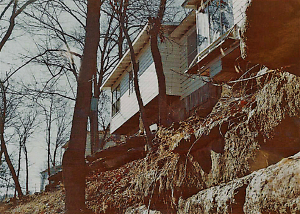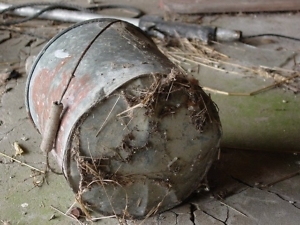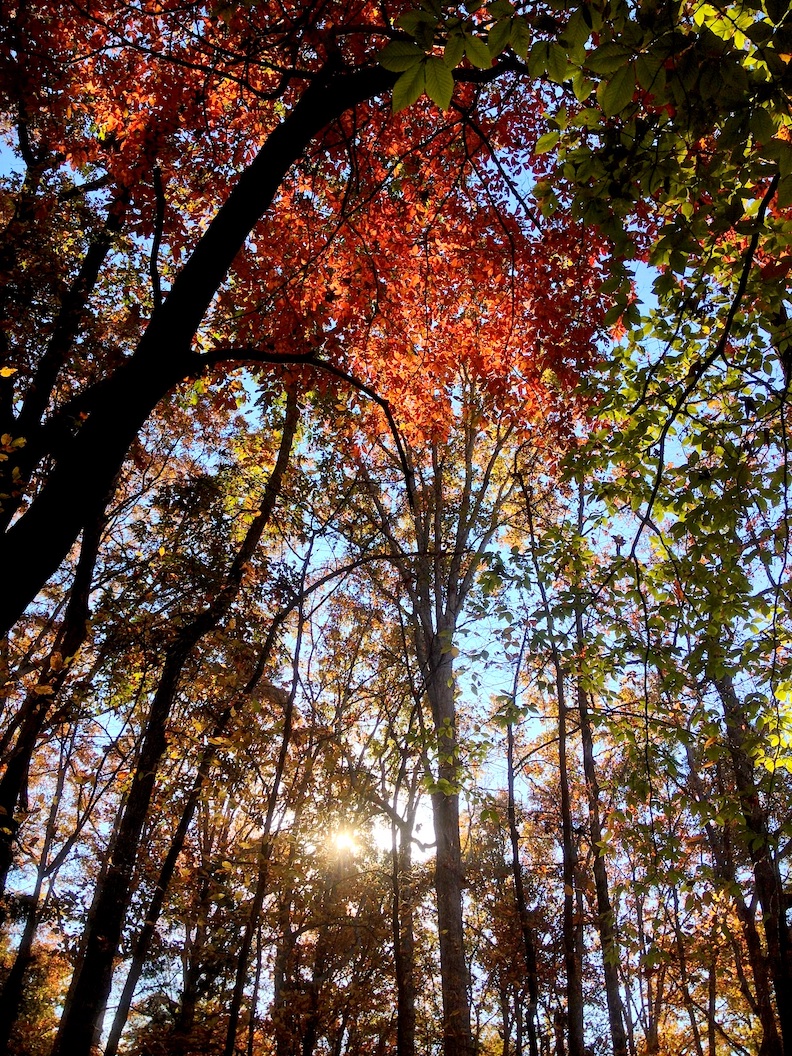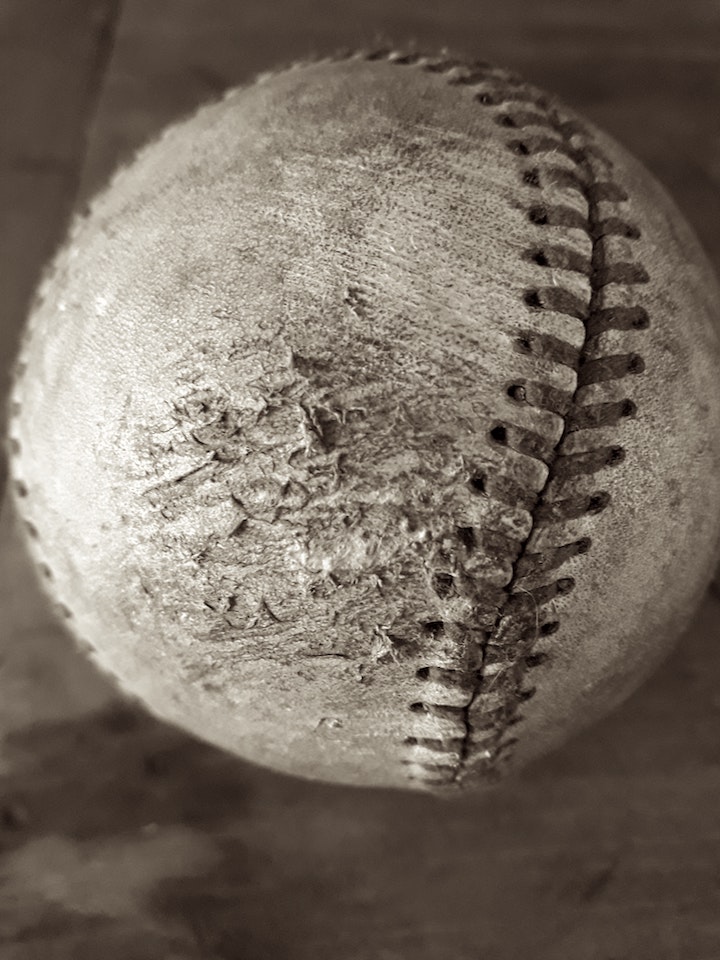Close Call
Second-prize winner in the Tennessee True Stories Essay Contest
Chapter 16 is pleased to publish the winners in our Tennessee True Stories Essay Contest. Regarding Richard C. Albins’ winning essay, contest judge Mary Laura Philpott writes:
“Metal buckets evoke a memory in me that’s hard to shake” — After reading this story about a near-miss that came so close to turning tragic, I’m not sure I’ll ever look at metal pails the same way either. Suspenseful storytelling and beautifully efficient structure!
Metal buckets evoke a feeling in me that’s hard to shake. Most pails today are colorful plastic. It’s pretty rare to see a large, heavy metal one with thick galvanized steel, the way they used to be when I was a boy. But you do see them occasionally, in antique shops or other such places. Whenever I see one, a memory comes rushing back.

I was stirring a bucket of mud over an open fire. Why, Lord only knows. But when you’re 7 years old, you don’t need a reason. Anything that combines a stick with mud, that’s reason enough.
My brother and sister and I were with our dad one winter Saturday, enjoying the woods down behind our house. I say “down” because we literally were down — the house was perched on a bluff and we were some 30 feet below, clearing brush. Well, Dad was clearing brush in the surrounding woods. The rest of us were occupying ourselves with meaningful play. My chosen task was cooking a bucket of mud over an open fire with a few weeds thrown in for flavoring. My brother’s job amounted to forming a line of green plastic toy soldiers for an assault on an imaginary enemy. And my sister, as usual, was sitting nearby critiquing his formations. All this was taking place under a large, contiguous rock overhang that jutted out some 10 feet from the adjoining bluff.
My watched pot was just beginning to boil when Mom called down to us announcing lunch was ready. I distinctly remember whining, “Oh, Mom, do we have to? Can’t we stay a little longer?” She was insistent. We knew ignoring her wasn’t an option, but we tried to linger as long as possible. As with all husbands, Dad knew to comply within the 40-second grace period he had implicitly agreed to as part of the marriage covenant. However, as with other kids our age, we were still learning our limits and exploring the technique of delay down to the nanosecond. Unfortunately, when Dad abandoned us and headed on up, our excuses quickly vanished.
We grudgingly climbed the hill, washed our hands, and sat down to lunch. Just as we were about to pick up spoons and dip into our soup, the whole house shook with a sudden thud that rattled everything, including us. Then silence. We looked at each other in wide-eyed fright. I remember running to our back window and seeing ripples on the pond behind the house. Dad ordered us to sit back down and not move until he returned. We stayed put, not touching our soup.
He went outside, checked around the house, and eventually headed back down the hill to where we had been just moments before. Sure enough, an enormous 6-inch slab of solid rock, the depth of the overhang and some 30 feet long, had dropped where we had been playing just moments before. It was a perfectly smooth slab, as if someone had pried it loose from its overhang. Dad came back up and reported what he had found. We were ordered to finish our lunch (which we did in record time), and then we quickly reassembled back down below the cliff.
We stood there in awe, trying to comprehend what had just happened — and more astoundingly, what could have happened to us. Entombed beneath that coffin of solid rock were my brother’s squadron of toy soldiers and my bucket of mud. Actually, I could still see a small portion of the bucket just barely peeking out from under the edge of the rock, flattened like a soda can in a hydraulic press. Even all evidence of the fire that had been cooking my brew was gone.
It was quite a sobering moment for our whole family. I don’t think we ever told anyone about it. It was one of those near misses that you don’t really talk about, feeling it had a certain sacredness best honored in silence.

I’ve often thought about that day. There’s really only one image seared in my mind. It’s not the house shaking from the thud of a multi-ton rock. It’s not the ripples quivering across the pond. It’s the image of a crumpled metal bucket barely sticking out from under an immense slab of stone. There, but for the grace of God, would have been me. I’ve wondered: What would my parents have done? How could they or anyone at the time penetrated that thick stone to recover what was left of their children? Would we have been sealed under there for eternity? What was it that impelled our mother to fix us lunch and call us at that time — and not five minutes later? What if we, as usual, had managed to dawdle a few moments longer?
More than a couple of decades have passed since I was last at our old house and down at that bluff. I was there with my two young sons watching them play in the snow. I happened to glance over at that fallen ledge. It had the look of a defeated war relic. Time had sunk it deeper into the ground, where lifeless weeds and now snow had gathered around its edges, as if to camouflage its attempt on our lives.
The casual observer might not even notice it. But to me it was a silent and deadly reminder of what almost was. Looking back at my boys laughing in the snow, I couldn’t help but think how different things would have been if it weren’t for the hand of Providence silently ushering us out of harm’s way. I should be grateful, and I guess I am. But it also makes me wonder if I was spared for a reason I cannot fathom.
Then again, perhaps that reason was right there playing in the snow in front of me.
I am sure the remains of that crumbled bucket have long since rusted away. But its memory hasn’t. It still lingers in antique shops, museums, and old barns, waiting to leap out and remind me of my blessings — and what might not have been.

Copyright (c) 2020 by Richard C. Albins. All rights reserved. Originally from Noel, Missouri, Richard Albins worked for the U.S. Army for most of his career. In 2010, he and his wife retired to Fairfield Glade, near Crossville, and he now divides his time between volunteering, woodworking, and church activities. He has two grown sons and is the grandfather of twin boys.


